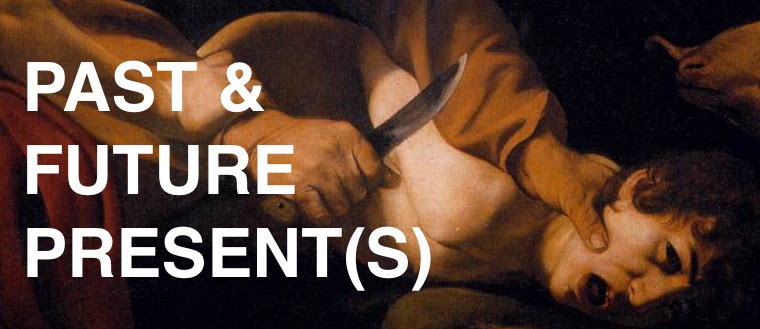 |
| Jean-Michel Basquiat, Untitled (1981) |
I’m not of the Frankfurt School. One must live a life of relative privilege these days to be so dour about domination, so suspicious of resistance, so enchained by commodification, so helpless before the ideological state apparatuses to conclude there’s no conceivable end to late capitalism’s daily sacrifice of human life to the singular freedom of the market.
— Ruth Wilson Gilmore (1993)
And then one fine day the bourgeoisie is awakened by a terrific boomerang effect: the gestapos are busy, the prisons fill up, the torturers standing around the racks invent, refine, discuss.
People are surprised, they become indignant. They say: "How strange! But never mind-it's Nazism, it will pass!" And they wait, and they hope; and they hide the truth from themselves, that it is barbarism, the supreme barbarism, the crowning barbarism that sums up all the daily barbarisms; that it is Nazism, yes, but that before they were its victims, they were its accomplices; that they tolerated that Nazism before it was inflicted on them, that they absolved it, shut their eyes to it, legitimized it, because, until then, it had been applied only to non-European peoples; that they have cultivated that Nazism, that they are responsible for it, and that before engulfing the whole edifice of Western, Christian civilization in its reddened waters, it oozes, seeps, and trickles from every crack.
Yes, it would be worthwhile to study clinically, in detail, the steps taken by Hitler and Hitlerism and to reveal to the very distinguished, very humanistic, very Christian bourgeois of the twentieth century that without his being aware of it, he has a Hitler inside him, that Hitler inhabits him, that Hitler is his demon, that if he rails against him, he is being inconsistent and that, at bottom, what he cannot forgive Hitler for is not the crime in itself, the crime against man, it is not the humiliation of man as such, it is the crime against the white man, the humiliation of the white man, and the fact that he applied to Europe colonialist procedures which until then had been reserved exclusively for the Arabs of Algeria, the "coolies" of India, and the "niggers" of Africa.
And that is the great thing I hold against pseudo-humanism: that for too long it has diminished the rights of man, that its concept of those rights has been—and still is—narrow and fragmentary, incomplete and biased and, all things considered, sordidly racist.
I have talked a good deal about Hitler. Because he deserves it: he makes it possible to see things on a large scale and to grasp the fact that capitalist society, at its present stage, is incapable of establishing a concept of the rights of all men, just as it has proved incapable of establishing a system of individual ethics. Whether one likes it or not, at the end of the blind alley that is Europe, I mean the Europe of Adenauer, Schuman, Bidault, and a few others, there is Hitler. At the end of capitalism, which is eager to outlive its day, there is Hitler. At the end of formal humanism and philosophic renunciation, there is Hitler.
— Aimé Césaire (1950)
 |
| André Fougeron, Atlantic Civilisation (1953) |
As for the great tut-tutting and anxious concern about the supposed anti-Semitism of second-generation Arab, South Asian, and African immigrants, nobody wants to state the obvious: to the extent to which it exists among them, which it certainly does, this anti-Semitism is a sign of their having become fully European. The particular stereotypes evoked by the torturers and killers of Ilan Halimi, for instance—you Jews are rich, so pay up—are a fundamental part historically of the European social imaginary, not some Arab, Islamic, or African one. This supposedly “new” anti-Semitism is not an import into Europe from some other less enlightened region of the world. The European anti-Semitic tradition has been dusted up and moved from the shoulders of one set of social actors within Europe onto those of another, from the older, national traditions to the newer minority communities, given a new shape this time in relationship to the anger generated by Israel’s brutal and ongoing destruction of Palestinian society. This shift in definitions is part of the burden of being an “immigrant”—second and even third generation—in Europe today. So complete is this transformation that even those conservative forces that are the traditional source of Jew hatred as a force in politics and society can now wield the charge of anti-Semitism against the immigrant communities at large without batting an eyelid and without generating even a whimper of protest from the liberal mainstream at this at least highly ironic turn of events.
— Aamir Mufti (2007)
What you think can put you in jail
what you say may be used against you
whatever you do to protect yourself will be
Seen as a strike against the patriot act which
will strike you down for being patriotic to yourself
— Jayne Cortez (2009)



